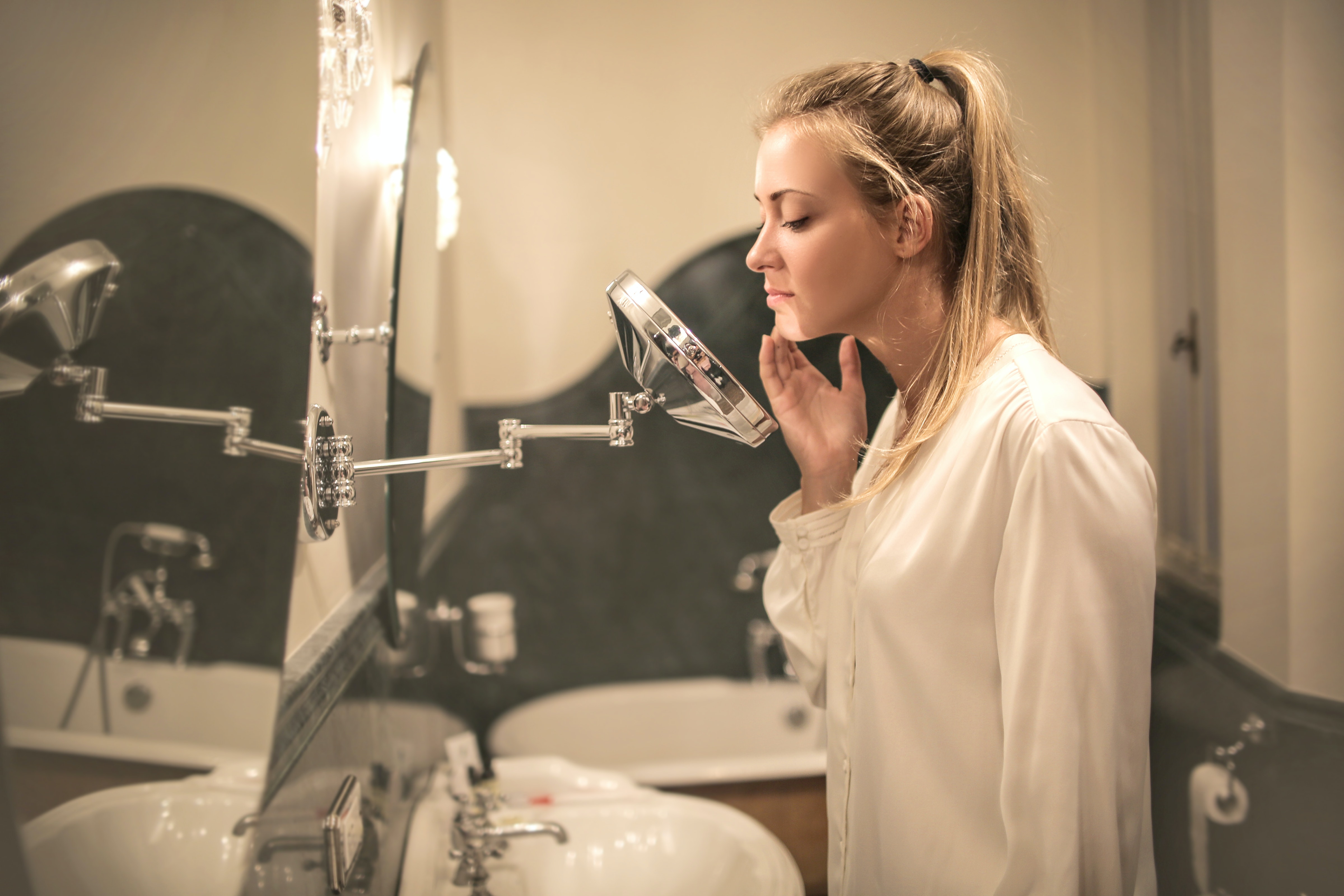
Stress acne occurs when your skin suddenly breaks out with pimples and blemishes when you’re feeling stressed or anxious.
Our body has an efficient stress-response system that triggers whenever we’re in danger. Perceived threats are abundant in today’s world where most people are in an exhaustive race to achieve impossible standards set by social pressure.
The socio-economic pressure of modern life has increased the probability of hypertension, heart disease, and depression. But, before it can impact the internal organs, this increased stress becomes visible on our skin, the largest organ of our body.
Many studies have found a correlation between stress and acne flare-ups, including a 2007 study on 94 secondary school students in Singapore and a Stanford study on 22 university students in 2003.
These studies and many others have found a significant positive correlation between stress levels and acne severity. Self care at work and at home can help mitigate skin problems like this, but why do they happen in the first place?

What Causes Stress Acne?
Underneath the oozy and painful little acne bumps, four factors work in tandem to make your skin look less than ideal.
- Bacterium (Cutibacterium acnes)
- General Inflammation
- Blocked Pores
- Hormones
The hormone in question is cortisol, the most significant stress hormone. Scientists have found stress hormone receptors in the sebaceous glands. These oil glands are present in skin layers and secrete sebum, i.e., oil for the skin.
According to Dr. Donna Hart, a board-certified dermatologist in Austin, Texas, “in times of stress, stress hormones can trigger oil glands to produce more oil, which can trigger acne flares.”
Cortisol can disrupt sebum regulation clogging the pores with excessive oil production. Clogged pores mean more whiteheads, blackheads, and big, red, and painful pimples.
“Stress plays a huge role in acne of all ages,” Dr. Laura D. Briley of Southern Dermatology & Skin Renewal Center notes. “Whether it’s physical or emotional, the physiological response to stress is inflammation, and acne is an inflammatory disease.”
Apart from triggering hormonal changes, stress also increases the inflammatory response in the skin. Simultaneously, it lowers the immune system’s ability to respond to inflammation making “acne worse by lowering your body’s ability to fight inflammation,” according to Dr. Sandra Lee, popularly known as Dr. Pimple Popper.
Where Is It Located?
Acne due to stress seldom occurs in the same place or at the same time of the month. It can appear any time and at any part of your face.
However, most often, stress-induced pimples occur in the T-zone of your face, i.e., the forehead, between the brows, bridge of the nose, and chin. That’s because our T-zone has more oil glands, so more oil is secreted in this area, leading to acne exacerbation.
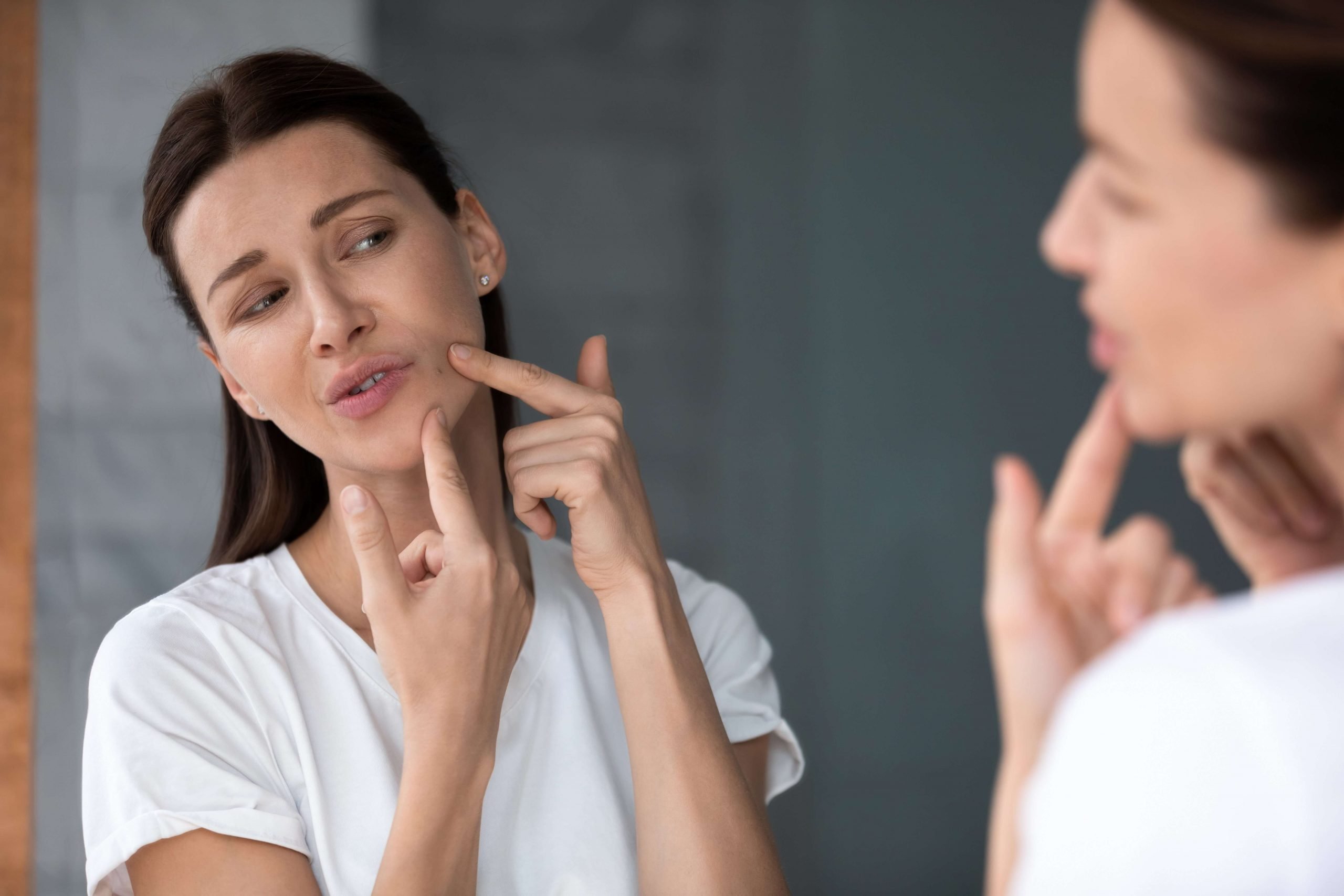
Signs Your Acne Could Be Caused from Stress
In a way, stress acne is hormonal acne because it occurs in response to hormones such as cortisol. However, you should note that it’s different from menstrual acne that typically correlates with the start of the menstrual cycle. Here are a few ways you can tell if your zits are stress-related or not.
-
- Flare-Ups Correlate With Increased Stress: If you notice an increase in the breakouts, make sure to check for your sub-level anxiety. Sometimes zits begin to appear long before we realize we’re stressed about something.
- Can Occur at Any Age: If you’re stress-prone, you may not be done with acne once puberty has run its course. While puberty can trigger acne in most persons with a genetic predisposition, stress pimples have no regard for age!
- No Fixed Location: Menstrual acne usually occurs at the same place every time. Stress acne can occur at any location, most often in the T-zone, as discussed above.
- Absence of A Pattern: Some people develop more pimples and rashes at the start of their menstrual cycle. Stress acne has no fixed pattern and can occur any time when you’re under physical and/or mental pressure.
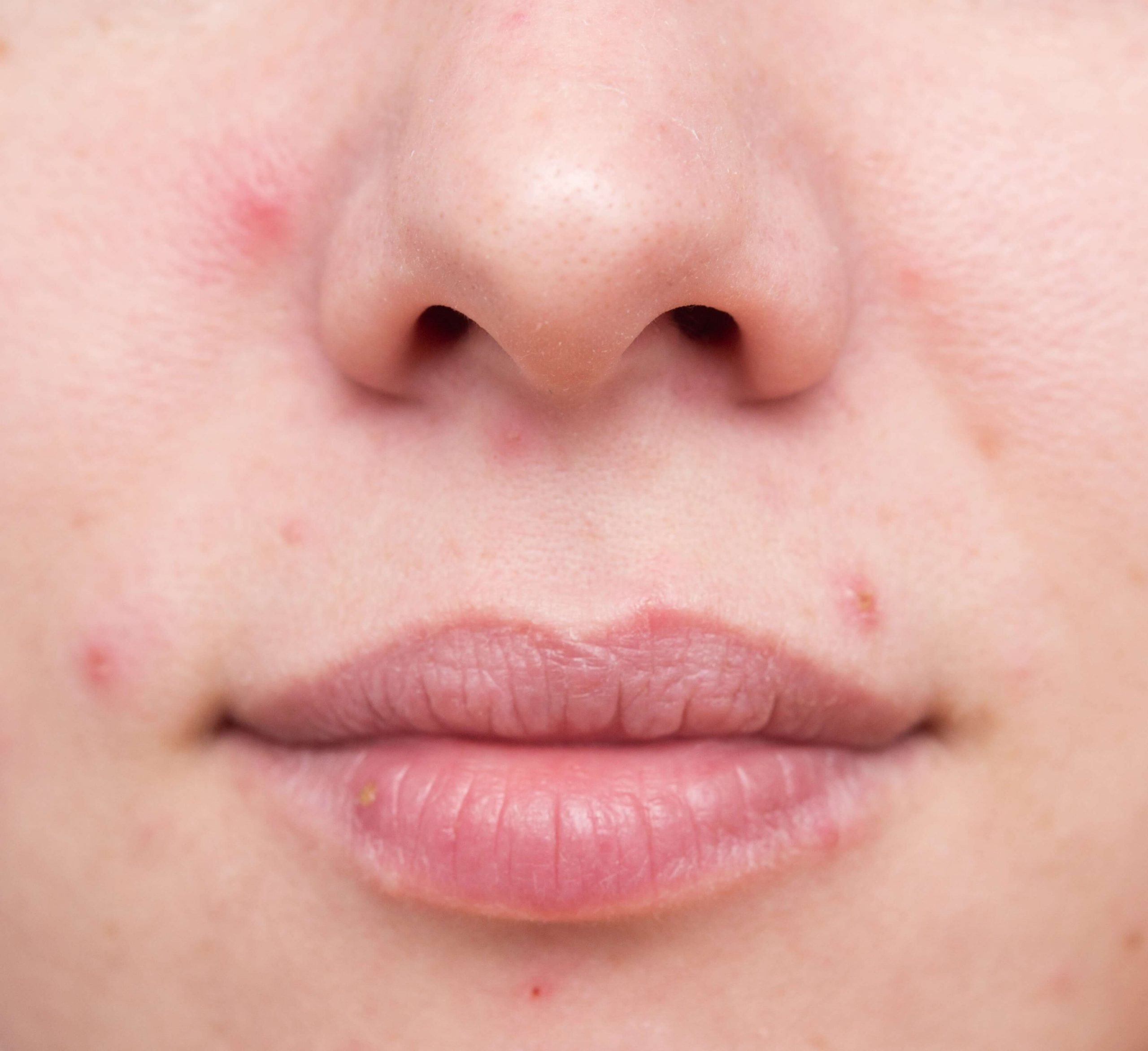
How to Get Rid of Stress Acne
Stress is inevitable in the modern era, but it doesn’t mean you’re doomed to bear these painful pimples and their scar pits. While you work hard to minimize the stress, you can take specific measures to keep your skin fresh and healthy without any breakouts.
However, if you have large painful pimples or acne cysts, it’s better to consult a dermatologist and get prescription medicine to ease the pain and prevent scarring.
1. Topical Treatments
Topical creams and lotions are best to combat breakouts and stop them from getting ugly. Stress acne responds best to the following topicals. However, don’t use them all at once. Each of these products has a specific function.
Benzoyl Peroxide
If you’re acne-prone, keep benzoyl peroxide in your medicine cabinet and use it as a spot treatment as needed. It’s an anti-inflammatory and antibacterial compound that you can apply right on the pimple.
Salicylic Acid
Clogged pores are a significant precursor of zits. Salicylic acid can unclog the pores, removing the oil on which acne bacteria feed. It’s also best for spot treatment. However, don’t use benzoyl peroxide and salicylic acid together at the same time.
Retinol
Retinol is a natural Vitamin A derivative. It has both short-term and long-term use benefits. On the surface, retinol serums exfoliate and unclog pores by removing excess oil. Simultaneously, the tiny molecules penetrate the skin and stimulate collagen and elastin production, making our skin look fresh and youthful.
Pimple Patches
If you’re having a hard time keeping your hands off the pimples, you can use pimple patches as a spot treatment for acne. Pimple patches adhere to the skin and typically have active ingredients such as salicylic acid and some essential oils. When the patch is in place, it occludes the pimple, allowing the ingredients to penetrate deep into the skin and heal it.

2. Manage Stress
Stress is a part of our everyday life. As long as we’re alive, we will struggle to get rid of stress, but we can take steps to minimize its hold on us. Research has found that the stress response differs from person to person and depends on their coping abilities. Some people can become agitated over a small disturbance, while others tend to stay stress-free no matter what happens to them.
Make relaxation techniques a part of your routine. The slow movements, deep breathing, and stretches involved in yoga are excellent for calming the nerves. Mediation is another excellent way to elevate mood and get control of your stress response.
A six-week study on college students showed a significant decrease in stress with a weekly guided meditation session delivered by the University of Rhode Island College of Pharmacy staff.
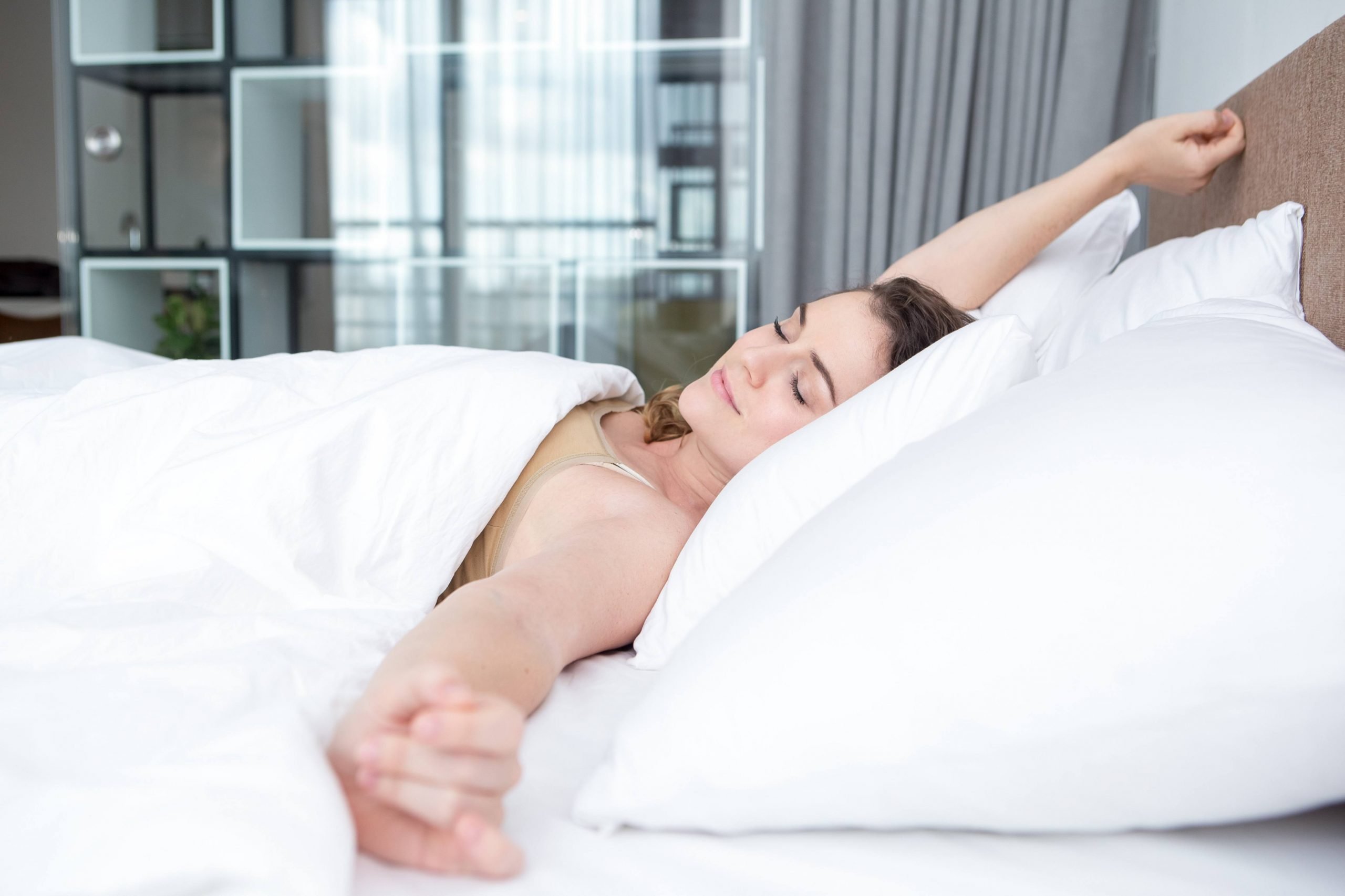
3. Take Care of Your Sleep
Stress and sleep can enter a vicious cycle due to high cortisol levels and adenosine keeping you awake in bed. The resulting sleep-deprivation has far-reaching effects on mental and physical health, especially on our immunity.
The immune system helps our skin fight off germs and microbes. These germs feed on clogged follicles unchecked due to hampered immunity. But, you can minimize stress acne by following a set bedtime routine.
Keep your sleep time the same every day and make your bedroom relaxing. Dim the lights, infuse a pillow with calming essential oils, read a book or write a journal to free your mind of all the worries and prepare for sleep.
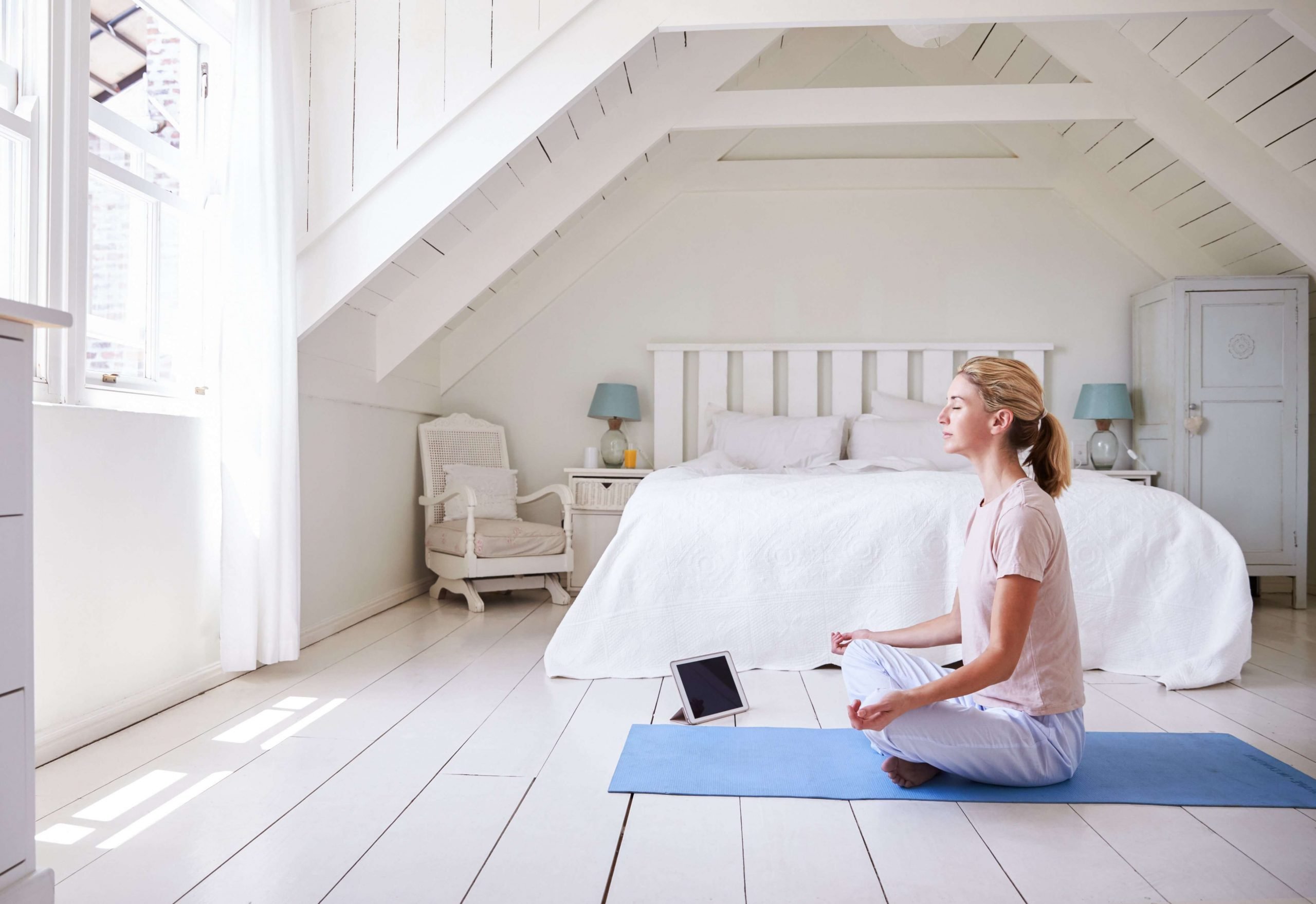
4. Practice Self Care
When we’re stressed out, self-care is the first thing that gets neglected. As we drag ourselves to do our routine chores and essential tasks, we forget to take care of ourselves. Skincare takes a back burner as we autopilot through the day mindlessly, focused on the cause of our stress, always anxious, always alert, burning ourselves out!
No wonder our skin breaks out! Here’s a few simple ways you can push stress acne out of your life.
Wash Your Face Twice A Day
During an 8-week study, researchers found that washing your face twice a day with a mild cleanser can show a significant decrease in blackheads, whiteheads, and other mild acne. Washing the face more than twice a day didn’t show any better results. However, the subjects who washed their face only once a day saw a considerable increase in acne severity.
Don’t Ditch the Moisturizer
Many people think that moisturizer will make their acne worse. That’s a misconception because our skin makes oil to keep itself hydrated. When you stop using your moisturizer, your skin stays dry, which triggers the oil glands to produce more oil. So, instead of ditching your moisturizer, make sure it’s suitable for your skin type.
Leave the Pimples Alone
Pinching pimples can be comforting for some, tempting for others. But, squeezing or popping pimples doesn’t make them go away. Instead, the pressure can push the bacteria down into the follicle and deeper skin layers. That’s why often, the popped pimple returns bigger, redder, and more painful than before!
Or, another pimple forms right beside the one you just popped. And that’s not all—disturbing an abscess can result in a permanent acne scar or a dark spot due to hyperpigmentation.
So keep your hand off those zits, and they may go away themselves after a while! You can cover them up with pimple patches to save them from your nails. You can also cover it with a dollop of spot cream so every time you touch it, you’ll remember not to squeeze it.
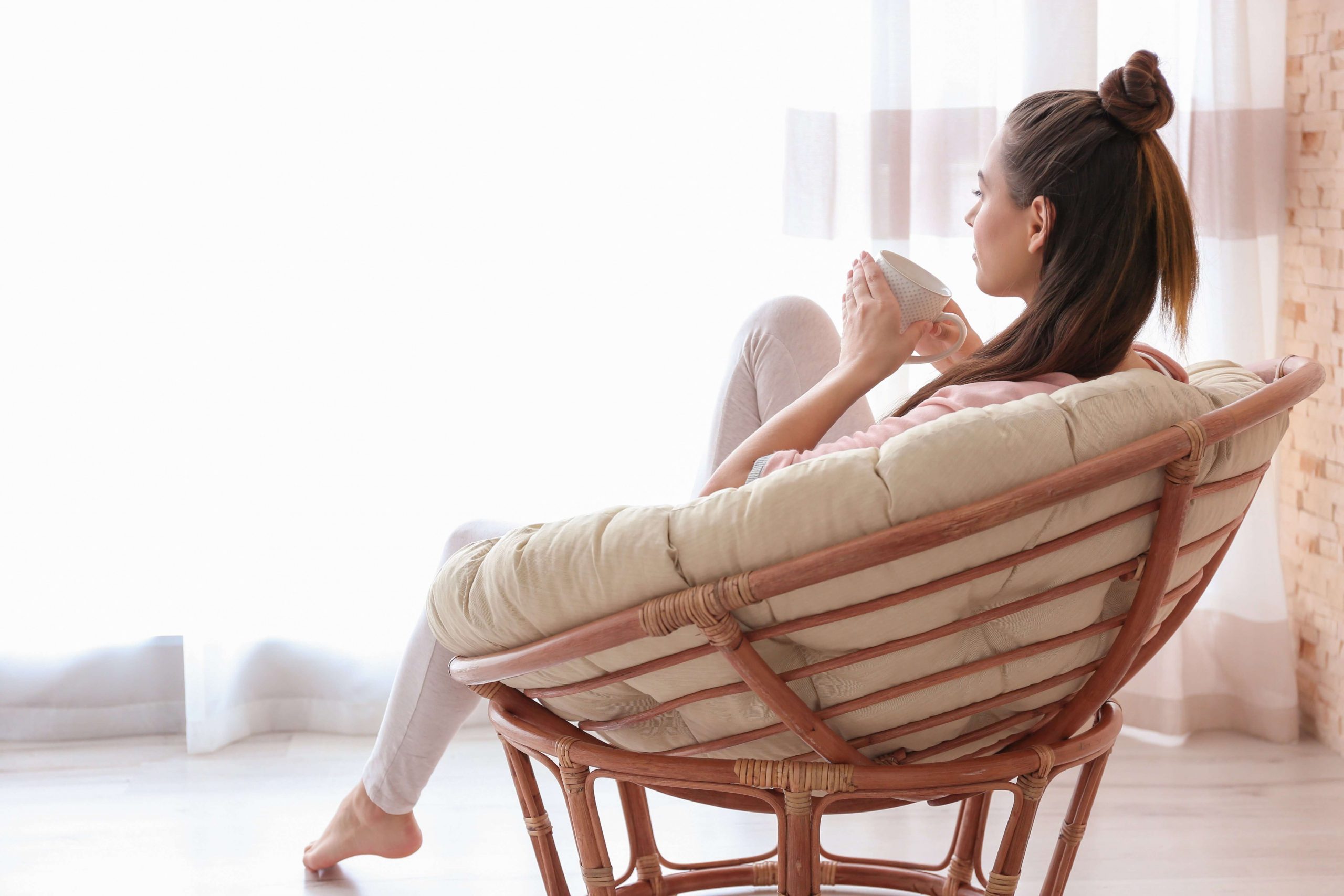
Watch Out Caffeine Intake
Caffeine triggers cortisol production just like stress. In small amounts, caffeine can lift your spirits and give you a boost.
Many people start glugging large amounts of coffee under pressure, increasing the body’s already increased cortisol levels. The result? Acne gets to have a field day on your face and body.
So make sure you avoid excessive amounts of coffee, energy drinks, and colas. They may temporarily make you feel better, but they will make your stress and acne worse as their immediate effects wear off.
Pamper Yourself Often
Going through all the modern-day challenges, we often forget to be nice to ourselves. We’re quick to point out our inadequacies to ourselves but fail to recognize our positive traits. Remember how relaxing and rejuvenating it is when our loved ones care for us? Why not pamper ourselves now and then instead of waiting for others to make us feel special.
Get a mani/pedi at your favorite spa, or watch that movie you’ve been putting off forever. Throw yourself a party, order your favorite food and crack open a bottle champagne for no reason at all. Curl up with a book or spend all evening in the bubble bath. Do what your heart desires, make yourself happy, and kiss your stress acne goodbye.

5. Exercise Regularly
Exercise is a sure-shot way to elevate the mood. It reduces stress hormones, cortisol, and adrenaline and stimulates the release of endorphins, the happy hormones. At the same time, exercise improves blood flow to our skin and accelerates our body’s healing power.
If your stress makes it hard for you to exercise, pair up with a buddy to go out for a walk or a run. You can also join a training group to keep up the motivation.

6. Eat Regular Meals
According to research, besides stress, food has a considerable effect on acne severity. Unfortunately, stress affects our appetite significantly. Some people start eating more frequently, binging on high-calorie comfort foods. On the other hand, others find food repulsive. Both situations are detrimental to your skin.
Eat at a set schedule and keep a food journal to track what you eat and how much. Fill your fridge and pantry with healthy snacks and high-protein foods so that whenever you eat, you put good calories and balanced nutrients into your body.
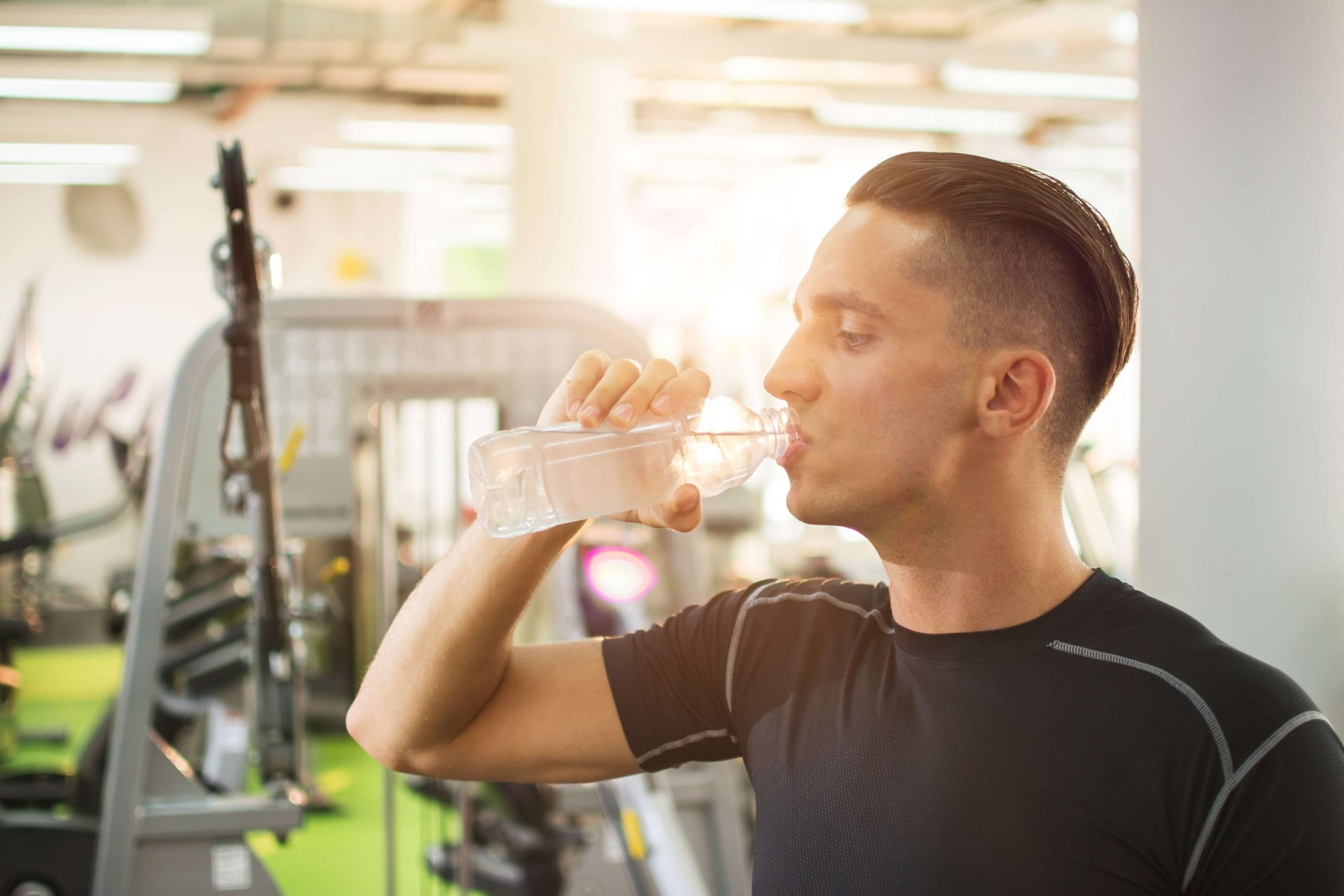
7. Drink Plenty of Water
When you’re under stress, your body loses water as your heart rate and breathing become faster. On top of that, anxiety can make you forget to drink ample amounts of water, leading to dehydration. Studies show that even half a liter of dehydration can increase cortisol levels.
Drinking plenty of water keeps cortisol levels in check and helps your body cope with anxiety better. Keep a water bottle with you at all times and drink small amounts throughout the day. If you don’t feel like drinking plain water, lemonade, fresh juices, and coconut milk are healthy and potent drinks to stay hydrated.
Stress and acne have a complex relationship. The stress hormone cortisol increases pimples by increasing skin oil and clogged pores. It also disturbs your daily routine, such as sleep, appetite, exercise, and skincare. This puts pressure on the body, pulling you into a vicious cycle of stress and acne.
You can break this cycle by making quality sleep, regular exercise, and a healthy diet a habit. Indulge in meditation and live a mindful and meaningful life, practice relaxing activities, and increase your stress tolerance to keep stress and acne at bay.

